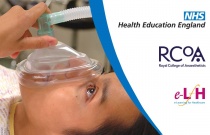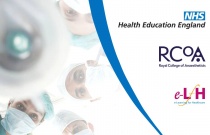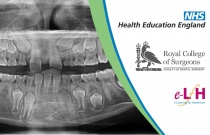Airway Maintenance: Tracheal Tube 2
Tim Cook, Christopher Seller and Tom Simpson
0.50 Hours
This session covers the recognition of correct and incorrect airway placement – for both the tracheal tube (TT) and the supraglottic airway device. The session describes the potential problems encountered, how to make the diagnosis and how to manage the incorrectly placed airway.
Airway Obstruction
Tim Cook, Christopher Seller and Tom Simpson
0.50 Hours
In this session you will learn about airway obstruction during anaesthesia in a spontaneously breathing patient; the causes and clinical signs.
PreOxygenation
Fred Roberts FRCA
0.50 Hours
This session outlines what preoxygenation is, why it is used and when to use it, and explains the two main techniques used to achieve it.
Rapid Sequence Induction
Aneeta Sinha and James Dinsmore
0.50 Hours
This session describes rapid sequence induction (RSI), the indications for RSI and how to perform RSI.
Practical Examples of Drugs used during Maintenance (anaesthesia)
Alistair Hellewell
This session outlines drug administration during maintenance of anaesthesia, for patients being ventilated or breathing spontaneously.
Airway maintenance and Oxygen Therapy
Sharon Holland
0.50 Hours
This session illustrates the importance of effective airway maintenance in the recovery room, why oxygen therapy is required and how it can be safely and effectively administered.
Respiratory Problems Anesthesiology
Richard Hughes
0.50 Hours
This session explains the ways in which a critical incident can result from a respiratory problem and suggests a logical sequence for rapidly identifying and correcting the cause.
Principles of Nutrition in the Critically Ill
James Wigfull and Lisa Brown
0.50 Hours
This session introduces the basic principles, and the importance, of nutrition and explains why nutrition in the critically ill differs from healthy subjects. It highlights the difficulties that arise with the delivery of nutrients and describes the commonly-used methods for calculating nutritional requirements.
Dexmedetomidine: its use in intensive care medicine and anaesthesia
VL Scott-Warren MBChB (Hons) FRCA and J Sebastian BSc MBBS MRCP FRCA
0.50 Hours
Dexmedetomidine is a relatively new drug to the UK having been launched in October 2011 with marketing authorization for sedation of adult intensive care unit (ICU) patients only. Despite this, its unique pharmacological profile has led to its unlicensed use in a number of areas of anaesthetic and critical care practice where e....
Being Open Theory
Jane Carthey and Christine Johnson
0.50 Hours
This session describes how to communicate effectively and empathetically with patients and carers who have been involved in a serious adverse event. This session was reviewed by Khyati Bakhai and last updated in December 2014.
Cataracts Presentation Referral and Post-op Care
Heidi Aichner Cataract and Primary Care Fellow, Moorfields Eye Hospital
0.50 Hours
This session provides core knowledge about managing patients who present with cataracts in primary care; their presentation, risk factors, management and postoperative care.
Clinical Approach To Brief Advice
Public Health England
0.50 Hours
This session aims to examine the relationship between the practitioner and the individual undergoing Brief Advice and provide some practical guidelines to use during brief advice.
Concepts of Puberty
Russel Viner
0.50 Hours
This session introduces key concepts relating to puberty such as: potential issues, biological changes, Tanner stages and timings. The onset of the reproductive function and the pubertal growth spurt are also discussed.
Confidentiality: Formal and Accidental Disclosures
Aidan Macfarlane
0.50 Hours
This session examines the circumstances under which you may have to break confidentiality either by disclosing something that has been to told to you verbally or that you have written in medical records. It also looks at circumstances where accidental disclosure may occur and what action may need to be taken when this happens.
Dietary Advice in Diabetes
Tutangi Amataiti
This session describes the dietary approaches for managing people with type 1 and type 2 diabetes. It highlights dietary resources and the range of dietetic services that are available both in the community and in diabetes centres. This session was reviewed by Khyati Bakhai and last updated in September 2022.
Child Protection Level 2 Part A - Recognition
Andrea Goddard Consultant Paediatrician
0.50 Hours
This session builds on from Level 1 to help clinical and non-clinical staff who have regular contact with parents, children and young people to recognise signs and behaviours seen in children who are being maltreated. It is important to note that throughout the session, the terms child and children mean anyone younger than 18 ye....
Promoting Attachment and Wellbeing Part 1: Concepts
Catherine Lowenhoff Independent Nurse Consultant, LCB Resources Ltd. Full-time PhD student, Oxford
0.75 Hours
This session is the first of two in this series focusing on attachment and wellbeing. This first session will provide an overview of attachment whilst the second (Positive Parenting and Parenting Issues/Promoting Attachment and Wellbeing Part 2: Practice) will explore the range of attachment-based interventions that help to fost....
Difficult Conversations in Palliative Care
Chantal Simon
0.50 Hours
There are inevitable times when GPs are faced with difficult conversations with patients or their friends or relatives, particularly in palliative care situations. This session aims to provide some strategies to tackle common difficult conversations.
Poor Concentration and Overactivity 2
Eric Taylor
0.50 Hours
This session looks at the origins of problems in concentration and activity control and the treatments available.
Abnormalities of the Dentition
Rachel OBrien
This session looks at abnormalities affecting the dentition including the assessment, diagnosis and management of missing, extra, abnormally formed and ectopically positioned teeth.
Root Surface Caries
Zehra Yonel
This session intends to highlight the principle methods of caries prevention.
Safe Prescription and Risk Management
Ivan Walton
0.50 Hours
This session gives guidance on how to practice medicine safely and responsibly within a complex organisational system.
Safe Anticoagulation
Rosalind Perrott
0.50 Hours
Anticoagulants have been identified as high risk medicines by the National Patient Safety Agency. This session describes patient and drug factors that should be considered to promote the safe use of anticoagulants in practice.
Safe Prescribing in Renal Impairment
Mee Chai
0.50 Hours
This session will provide an overview of the pharmacokinetic and pharmacodynamic changes which occur in patients with renal impairment. It will also highlight how changes in drug dosing regimes are necessary to prevent adverse events. Finally, the session will also describe the classification of chronic kidney disease (CKD) and....
Prudent Use of Antibiotics (Part 1)
Nick Cooley and Greg Scutt and Paul Wade
0.50 Hours
The aim of this session is to promote rational use of antibiotics in optimising treatment of patients with infections and reducing emergence of antibiotic resistance. It also highlights factors affecting the route of administration and duration of therapy. Monitoring of antibiotic serum drug levels will be explained.
























